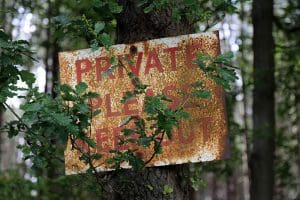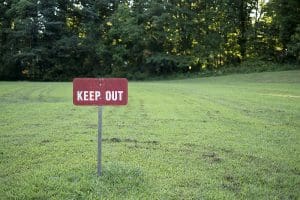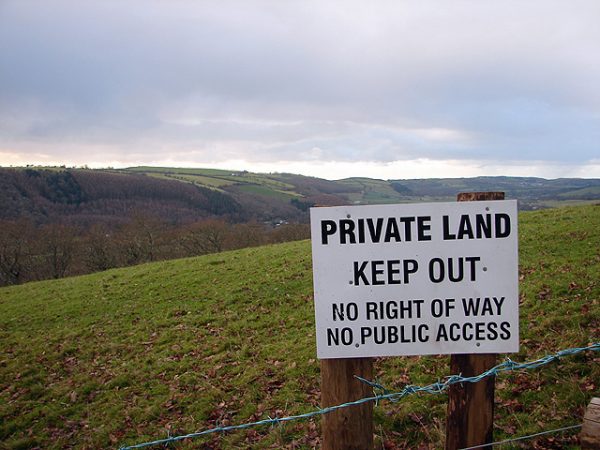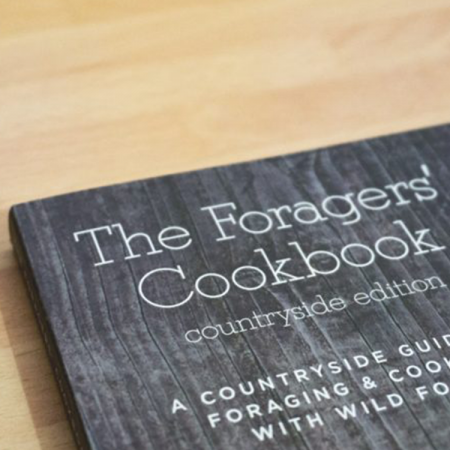When we’re running our foraging courses one of the questions we are often asked is “Is foraging legal?”.
One of our major roles as foragers is to teach people about the law and the responsibility surrounding gathering wild ingredients. As foraging gets more and more popular it’s even more important that we all gather in a legal and responsible way. The laws around foraging are quite outdated in many cases and that can lead to some misunderstandings, hopefully, this article will make the laws a lot easier to understand.
The information in the articles focuses on the law in England and Wales, in Scotland the law is slightly different and we will cover that at the end.
Foraging is covered by two pieces of legislation:
The Wildlife and Countryside Act 1981 and the Theft Act 1978.
The Wildlife and Countryside Act makes it illegal to collect any wild plant or mushrooms from certain places for example National Nature Reserves (NNR) or Sites of Special Scientific Importance (SSSI) without the permission of Natural England. Also under Schedule 8 of the Act, some plants and fungi are given extra protection so they would be illegal to gather. The Act also makes it illegal to dig or uproot any plant without the land owner’s permission.
The Wildlife and Countryside Act 1981 – what important for foragers to know
13Protection of wild plants.E+W
(1)Subject to the provisions of this Part, if any person—
(a)intentionally picks, uproots or destroys any wild plant included in Schedule 8; or
(b)not being an authorised person, intentionally uproots any wild plant not included in that Schedule,
he shall be guilty of an offence.
(2)Subject to the provisions of this Part, if any person—
(a)sells, offers or exposes for sale, or has in his possession or transports for the purpose of sale, any live or dead wild plant included in Schedule 8, or any part of, or anything derived from, such a plant; or
(b)publishes or causes to be published any advertisement likely to be understood as conveying that he buys or sells, or intends to buy or sell, any of those things,
he shall be guilty of an offence.
(3)Notwithstanding anything in subsection (1), a person shall not be guilty of an offence by reason of any act made unlawful by that subsection if he shows that the act was an incidental result of a lawful operation and could not reasonably have been avoided.
(4)In any proceedings for an offence under subsection (2)(a), the plant in question shall be presumed to have been a wild plant unless the contrary is shown.
What about the theft act – does that have any influence on foraging?
The Theft Act makes it illegal to collect any wild plant or fungi for commercial purposes without the landowners’ permission.
It is not an offence to collect for personal use, if you are technically trespassing all the landowner can do is ask you to leave by the quickest and safest route.
Theft Act 1978.
(3)A person who picks mushrooms growing wild on any land, or who picks flowers, fruit or foliage from a plant growing wild on any land, does not (although not in possession of the land) steal what he picks, unless he does it for reward or for sale or other commercial purpose.
- For purposes of this subsection “mushroom” includes any fungus, and “plant” includes any shrub or tree.
What’s the four F Rule?
When running our courses we teach the 4 F rule i.e. that you can pick the four F’s: flowers, fungi, fruit and foliage from anywhere you have legal access to. We also apply the 30% rule where we wouldn’t take more than 30% of a plant or mushroom from one location. Also use your common sense, abide by the Countryside Code and treat these places with the respect that they deserve.
When gathering any wild ingredients always observe the follow rules:
- Only pick what you will consume, it can be tempting when you come across an amazing haul to take it all but if half of its roots in your basket it’s a waste
- Minimise damage, i try to leave a site so that no one would have known i’ve been there.
- Stick to the four F’s flowers, fruit, foliage and fungi. Taking the roots of a plant in most cases will kill it.
- Only take from plentiful populations and only then take no more than 30%
- Do not collect rare species, if you are unsure leave it alone.
- Do not pick any protected sites, for example SSSI’s and NNR’s
Also bear in mind that some sites and landowners may have their own bylaws in places.

Is Foraging Legal in Scotland
The law in Scotland is slightly different, attitudes and laws around the ‘right to roam’ are a little more enlightened. The universal public access to all land was finally codified into Scottish law in the Land Reform (Scotland) Act 2003. This permits us to use all land, public or private, for recreation, education and access with only a few restrictions.
After that The Wildlife and Countryside Act 1981 as amended by the Nature Conservation (Scotland) Act 2004 still applies.
If all of this still seems confusing try not to worry too much, a sensible and respectful approach, taking into account conservation and other land users is really all you need. Hundreds if not thousands of tons of edible wild foods rot away each year and you should feel good about saving a few for the pot.
Is foraging legal in Europe
In Finland and other Scandinavian countries, “Everyman’s Rights” are enshrined in law, allowing anyone to forage for fruits and fungi on any land, regardless of ownership, even if they are picking for commercial gain. Not only that, but all income from wild food is exempt from income tax!

Further reading:
https://www.woodlandtrust.org.uk/visiting-woods/things-to-do/foraging/foraging-guidelines/
https://www.legislation.gov.uk/ukpga/1981/69/schedule/8
https://www.gov.uk/government/publications/the-countryside-code
https://www.britmycolsoc.org.uk/
https://www.britmycolsoc.org.uk/mycology/conservation/red-data-list
https://en.wikipedia.org/wiki/Land_Reform_(Scotland)_Act_2003
https://gallowaywildfoods.com/foraging-and-the-law/
https://www.legislation.gov.uk/asp/2004/6/pdfs/asp_20040006_en.pdf






